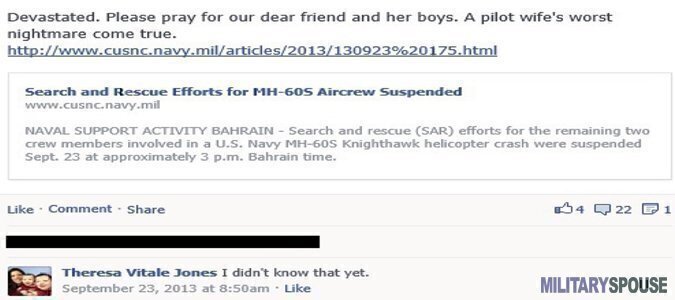There is also a very real downside. With the advent of social media came a deluge of information that is unfiltered and quick to be released. Journalists have always been taught to get the story first; as social media and 24-hour news has flourished, the race to spread information has led to ethical dilemmas. In Theresa’s case, she was informed that her husband’s Navy helicopter squadron had been involved in an incident over four hours before CACO knocked on her door by an article shared by the USS Nimitz’s official Facebook page.
Her CACO was frustrated to hear that but assured her that when they had news of her husband’s condition she would be the first to know. Sadly, the next morning her good friend shared an article that was released by the official 5th Fleet Navy command that informed Theresa the search had been called off; Landon was officially dead.
As you might guess, Theresa wishes she hadn’t been informed of her husband’s death through Facebook. Military death notification is carried out in a way that is supposed to be dignified, informative and supportive. CACO visits are often done with a chaplain and a close friend in tow: a shoulder to cry on, and a person to pray with during an impossible time.
Instead, Theresa found out that the Navy had stopped searching for Landon while holding her iPad; she had her coffee in hand, with nobody around her but her newborn son. Theresa’s story begs the question: how can we as military spouses empower each other with social media, and at the same time protect one another from too much information too soon?








